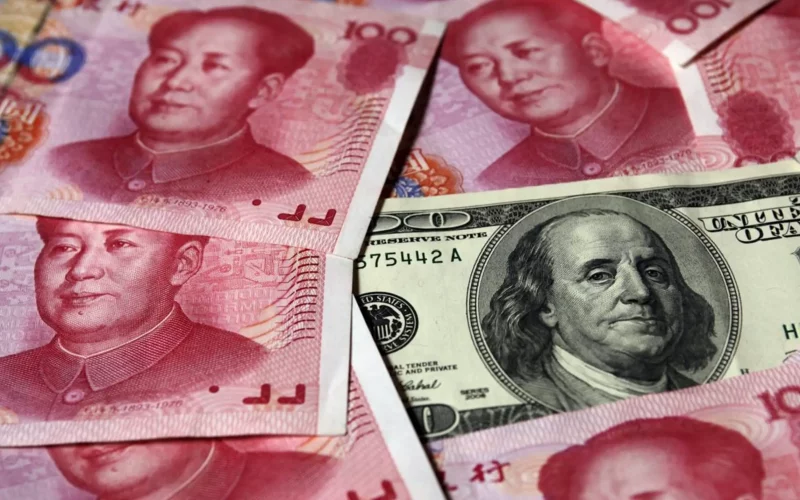The International Monetary Fund (IMF) has raised the possibility of accepting the Chinese Yuan as a currency for countries to fulfill their debt obligations. This move comes after Argentina recently repaid part of its debts to the IMF in yuan.
IMF spokesperson Julie Kozack confirmed that Argentina made a debt repayment of $1.1 billion in yuan out of the $2.7 billion that matured last month. She stated that the RMB (official name of the Chinese currency, renminbi) is one of the five freely usable currencies that members can use to settle their obligations with the IMF.
“As we have stated in the past, the Argentine authorities continue to remain current on their financial obligations to the IMF,” Kozack said at a press briefing.
“The RMB is one of the five freely usable currencies that members can and have used to settle their obligations with the IMF,” she added, referring to the Chinese currency by its official name, the renminbi.
“Our team has been working intensively with the Argentine authorities to make progress toward the completion of the fifth review,” she added. “And to help the authorities address a very complex and challenging situation.”
“As I have noted before, the focus of these discussions has been on alternatives to strengthen the authorities’ program, while recognizing the act of the drought on the economy,” she continued. “And this includes discussions on policies to safeguard stability, by enhancing reserve accumulation and improving fiscal sustainability, while of course protecting the most vulnerable parts of the population.”
“In terms of the details of those of the discussions, because the teams are still in discussion, I will not pre-empt those discussions and I will not get into the details other than to say that the discussions are frequent, and they are aimed at advancing the program,” she went on.
While negotiations on Argentina’s $44-billion program are still ongoing, Kozack denied receiving any letter from the Chinese Communist Party regarding Argentina’s use of a swap line with China’s Central Bank to pay off IMF dues.
Argentina’s Central Bank recently renewed a 130 billion yuan ($18.4 billion) swap line with China for another three years, doubling the amount of freely accessible funds. Additionally, Argentina has taken steps to promote more yuan spot and future operations, signaling a shift away from relying solely on the U.S. dollar as its reserve currency.
The use of the yuan for trade and investments has been growing, with Brazil also signing an agreement with China to conduct transactions in their own currencies, reducing the dominance of the U.S. dollar.
Yi Gang, China’s central bank governor, said China’s digital currency in circulation reached 16.5 billion yuan as of end-June. Still, e-CNY in circulation accounted for only 0.16per cent of China’s M0 money supply, or cash in circulation, Yi added.
Chinese state-owned banks participated last year in a trial focused on cross-border transactions developed by the Bank of International Settlements. The figures solidify China’s position as a frontrunner in the development of central bank digital currencies (CBDCs), which are digital tokens issued by central banks.
Despite being in the early stages of adoption, China has emerged as a prominent leader among nations venturing into this area. The digital yuan, known as e-CNY, has primarily been utilized for domestic retail transactions up to this point.
In significant Chinese banking news, the Communist Party on July 1st appointed Pan Gongsheng, the Deputy Governor of the People’s Bank of China (PBOC), as the PBOC party chief. This decision has been seen as positioning him to potentially succeed the current 65-year-old central bank governor, Yi Gang.
The role of the central bank governor, which is nominated by the government, holds significant importance for the world’s second-largest economy.
Despite these developments, experts suggest that the yuan is still a long way from becoming an international reserve currency like the dollar. China’s financial markets and restrictions on money flows in and out of the country present challenges for the yuan to gain widespread global acceptance.

